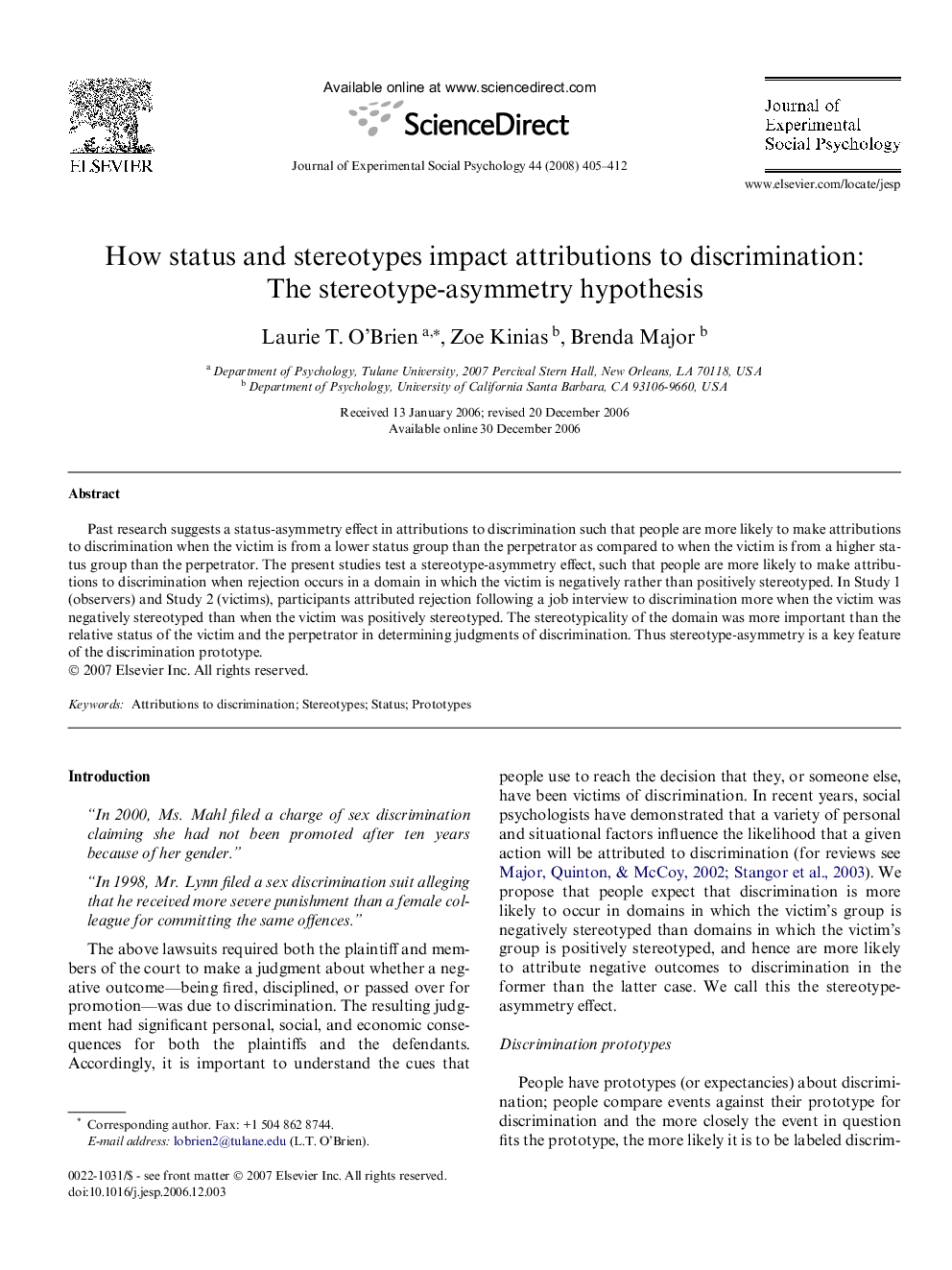| Article ID | Journal | Published Year | Pages | File Type |
|---|---|---|---|---|
| 948550 | Journal of Experimental Social Psychology | 2008 | 8 Pages |
Past research suggests a status-asymmetry effect in attributions to discrimination such that people are more likely to make attributions to discrimination when the victim is from a lower status group than the perpetrator as compared to when the victim is from a higher status group than the perpetrator. The present studies test a stereotype-asymmetry effect, such that people are more likely to make attributions to discrimination when rejection occurs in a domain in which the victim is negatively rather than positively stereotyped. In Study 1 (observers) and Study 2 (victims), participants attributed rejection following a job interview to discrimination more when the victim was negatively stereotyped than when the victim was positively stereotyped. The stereotypicality of the domain was more important than the relative status of the victim and the perpetrator in determining judgments of discrimination. Thus stereotype-asymmetry is a key feature of the discrimination prototype.
